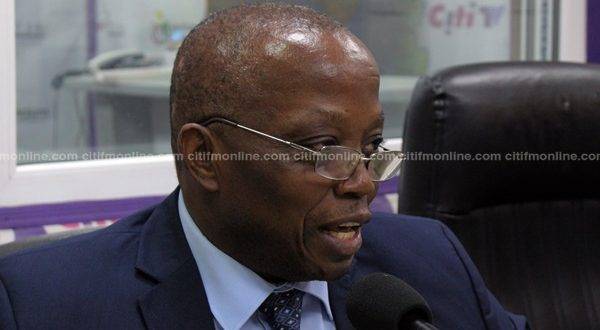Former Auditor-General Daniel Domelevo has strongly criticized the alleged food distribution by Ayawaso West Wuogon Member of Parliament Lydia Seyram Alhassan during the Special Voting exercise held on December 2, 2024, at the Legon Police Station polling center. Domelevo described the incident as a serious threat to the credibility of Ghana’s electoral process, urging immediate action to curb such practices ahead of the main elections scheduled for December 7.
The accusation, which has sparked widespread discussion, revolves around claims that Alhassan distributed food packages to security personnel and election officials during the special voting exercise. This practice, according to Domelevo, raises significant ethical questions and undermines the principles of fairness and transparency that should guide elections.
Speaking to journalists during a public forum titled “Curbing Illicit Financial Flows Through Accountable Governance: The Role of Media,†Domelevo did not mince words as he criticized the act, calling it “shameful†and a disservice to the integrity of Ghana’s electoral system.
“I find it extremely shameful to witness security officers and election officials openly accepting food packages during an electoral process,†Domelevo said. “This act compromises the moral authority of these officials. If a security officer accepts a package today, how can they reprimand voters or officials who may engage in more egregious offenses, such as accepting bribes or vote-buying, during the main elections?â€
The former Auditor-General elaborated on the broader implications of such actions, stating, “If voters observe security personnel engaging in such activities, it sets a dangerous precedent. Imagine a voter accepting GH₵1,000 in cash as a bribe while a security officer has accepted food worth a fraction of that amount. The integrity of the election process becomes questionable, and the credibility of law enforcement to uphold electoral laws is severely undermined.â€
Domelevo emphasized the critical role of security personnel and election officials in maintaining the sanctity of elections. He expressed disappointment in what he described as a failure of judgment on their part and called on all stakeholders to prioritize the nation’s democratic values over personal or political interests.
The incident has also drawn criticism from various civil society organizations, political analysts, and members of the public, who view it as part of a broader issue of vote-buying and electoral manipulation in Ghana. Some have called for strict sanctions against individuals and political parties found engaging in such practices.
Lydia Seyram Alhassan has yet to respond to the allegations, but the incident has cast a shadow over the credibility of the Special Voting process, which is a critical component of Ghana’s electoral system. Special Voting is designed to allow security personnel, election officials, and other essential workers to cast their votes ahead of the general election day, enabling them to perform their duties without interference during the main elections.
The controversy has also reignited discussions about the need for comprehensive electoral reforms in Ghana. Critics argue that the country’s electoral laws must be strengthened to address issues such as vote-buying, undue influence, and the abuse of state resources during elections.
Domelevo’s comments have added weight to calls for accountability and transparency in the electoral process. He urged political parties to focus on issue-based campaigns and to avoid actions that could erode public trust in the democratic process.
“We must remember that elections are not just about winning. They are about upholding the values of democracy, fairness, and accountability. Political parties must lead by example and refrain from practices that compromise these values,†Domelevo said.
As Ghana prepares for the December 7 polls, the Electoral Commission and other stakeholders face mounting pressure to ensure that the elections are conducted in a free, fair, and transparent manner. Observers have called for increased vigilance, public education, and stricter enforcement of electoral laws to deter acts of misconduct.
The allegations against Lydia Seyram Alhassan serve as a stark reminder of the challenges facing Ghana’s democracy. While the country has been lauded for its relatively stable democratic processes, incidents such as these highlight the need for continued vigilance and reform to safeguard the integrity of its elections.
With just days to go before the elections, the incident has become a rallying point for advocates of electoral integrity, who hope that it will spur a broader conversation about the need for ethical conduct and accountability in Ghana’s political landscape.




No comments yet
Be the first to share your thoughts!